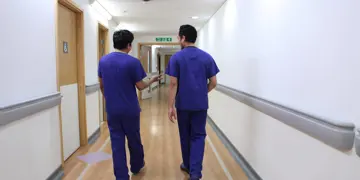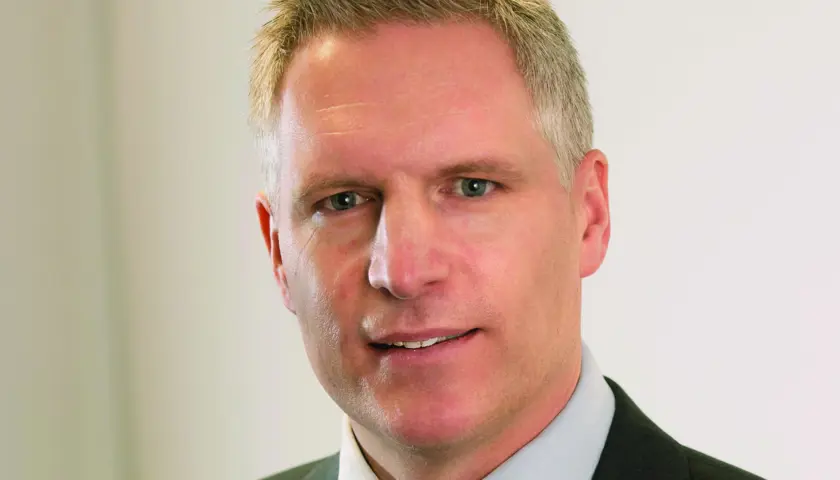Attracted to other shores
Attracted to other shores
Many final- and penultimate-year students in Northern Ireland are considering starting their careers elsewhere, a survey shows. Jennifer Trueland talks to them about their disillusionment with the healthcare system and their motivation for leaving their country behind
‘I’ve got Australia in my head. I’m thinking about going away and experiencing a healthcare system that’s in a better state, with better pay and better conditions, and that will take less of a psychological toll on me. I think a lot of people are thinking that now.’
So says Sam Scholes, a fourth-year medical student at Queen’s University, Belfast. Like many of his contemporaries, he is thinking about what he wants to do in the early stages of his career, and making the move to Australia is top of the list.
As well as hoping for better pay and conditions, the ‘bottleneck’ in getting on to specialty training programmes, which is creating unprecedented medical unemployment, is encouraging him and many to look elsewhere.
‘I want to do my F1 [foundation year 1] and F2 in the UK, but beyond that, I’m looking abroad because the system is under so much strain,’ says Mr Scholes, 25, who is studying medicine as a post-graduate degree. ‘I’m looking at friends who studied medicine straight out of school and they’re now applying for specialty jobs, and they’re simply not getting in. I’ve a couple of friends who are on their third or fourth time applying for IMT [internal medicine training].
‘So, I’m thinking, what if I don’t get in? Do I want to do F3 and F4 here? Or would I rather go abroad and see what it’s like?’
Mr Scholes isn’t alone. A BMA Northern Ireland survey, published today, shows a majority of final- and penultimate-year students at the country’s two medical schools have decided or are considering leaving Northern Ireland to start their careers. More than two thirds of those who are planning to leave intend to go to Australia to work.
‘It should be deeply concerning to all of us that a significant number of medical students on the verge of graduating are already planning for careers elsewhere after they complete foundation training, says Milan Kapoor, chair of BMA Northern Ireland medical students committee.
‘Northern Ireland medical students graduate with high levels of debt. They also have first-hand experience of workplace pressures in the health service, and this has a huge impact on the quality of education and training while on clinical placements. It should therefore come as no surprise that they are looking elsewhere for better pay and training quality in health systems outside of Northern Ireland.’
The survey shows 54 per cent of respondents are either planning to leave Northern Ireland or are unsure where they would work after finishing foundation training.
Those planning to leave cite pay and conditions, the poor state of the health service, and more than half (51 per cent) say it is down to poor experiences of training or medical education.
We owe it to the patient population to encourage these doctors of the future to stay and work in Northern Ireland
Alan Stout
Just 3.92 per cent consider doctors’ pay and reward was fair in Northern Ireland. Most – 83 per cent – say improved pay would encourage them to stay, while more than three quarters say improved working conditions would make a difference.
For those intending to stay in Northern Ireland, family and support networks are the overwhelming factors in their decision.
Mr Kapoor believes the situation could be turned round. ‘Over 90 per cent of those surveyed said they still wanted to pursue a career in medicine so it is imperative that the Government do all they can to encourage these newly qualified doctors to stay here for the duration of their careers.
‘Aside from addressing doctors’ pay and workplace conditions, one area they can tackle to help this is fixing the unfair and complicated student finance system. It saddles students with a large amount of debt as soon as they start work and penalises those from lower-socio economic backgrounds from studying medicine. These debts are another factor in resident doctors’ seeking work in better paid health systems in other countries.’
BMA Northern Ireland council chair Alan Stout says the survey results ‘sound an alarm bell’ for an increasing workforce crisis in a health service already operating with unsafe staffing levels.
‘We owe it to the patient population to encourage these doctors of the future to stay and work in Northern Ireland. That means valuing doctors with timely and adequate pay uplifts alongside targeted workforce planning.’
As for Mr Scholes, he has arranged work in Melbourne for four weeks this summer for his elective, with the idea, he says, of ‘scoping it out’ for the future. For his foundation years, he hopes to get a place in Liverpool, near his family on the Wirral, before looking further afield. ‘I think F1 and F2 are some of the most challenging times to be a doctor as it’s a big step up from university, so it would be nice to be closer to home,’ he says.
As a postgraduate student – his first degree was geography and environmental science at the University of Edinburgh – his medical degree has been entirely self-funded so far, he says. So apart from anything else, he wants to be sure of a well-paying job to help him pay back his student debt, which runs into tens of thousands of pounds.
‘I am concerned about getting to the end of F2 and hitting the bottleneck to specialist training. It’s competitive to be a doctor – and it should be – but not to the level it currently is, and I think some people feel disillusioned.’
He has friends working in Australia who earn ‘significantly more’ than those in similar jobs in the UK, he adds, but it’s about more than the money. ‘It’s also about whether people value and respect doctors. I hope things improve here [in the UK] but at the moment I want to broaden my horizons and get more experience and take it from there.’
Your voices
The BMA Northern Ireland survey asked medical students why they wanted to leave. Here are some of the responses:
‘I would love to stay in Northern Ireland, but if better pay and training opportunities can be achieved elsewhere, I will move.’
‘I honestly dread the thought of working as an F1 in NI with current conditions. Extremely sad after five years you should be excited to graduate and work.’
‘[Doctors are] not treated with the value that is deserved. Underpaid compared to other counties. Too competitive for training programmes.’
‘Competition in NI for certain programmes extremely competitive – great candidates held at the bottle neck and choosing to take better opportunities in the rest of the UK.’
‘I have no intentions of working long term in the NHS. I plan to move to Australia or New Zealand, either to train or upon achieving CCT [certificate of completion of training]. Better lifestyle, better remuneration. UK is a race to the bottom – doctors no longer valued; disrespected and vilified.’






